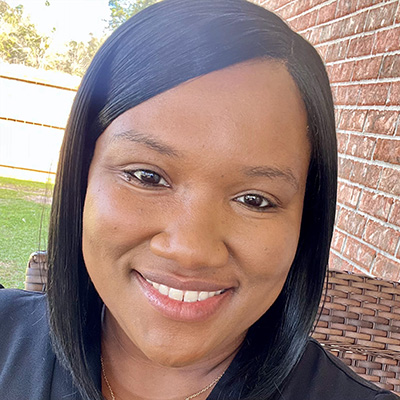According to an article by Johns Hopkins Medicine, two-thirds of Americans don’t have a living will or advance directive. Planning ahead can help reduce stress and uncertainty for both seniors and their loved ones.
“A lot of people don’t know what an advance directive is,” says Lectoria Byron, a social worker with our Mobile, Alabama program. “So, it’s giving them that knowledge—informing them of exactly what it is and how it can help them. That eases a lot of anxiety.”
We sat down with Lectoria and Registered Nurse & Case Manager Amanda Albright to find out why these decisions matter and how the PACE care model fosters them.
What is an advance directive and why does it matter?
An advance directive is a legal document that explains what kind of medical care you want if you can’t speak for yourself. It usually has two main parts:
- A living will, which says what treatments you do or don’t want.
- A durable power of attorney for healthcare, which names someone you trust to make medical choices for you.
“Imagine for yourself,” Amanda says. “Someone you love deeply is in crisis because something’s happened to you—and they can’t find your funeral plans, your bank statements, or your healthcare wishes. They won’t have time to grieve because they’re forced to focus on the paperwork and decisions that could have already been made.”
How does PACE help with these difficult conversations?
Both Lectoria and Amanda emphasized education and pre-planning as the biggest ways their team offers support.
Lectoria and the other care team members talk about advance directives during check-ins that happen twice a year.
“We break it up into manageable steps so it’s not overwhelming,” Lectoria says. “In Alabama, we have a basic form that requires two signatures and two witnesses, and we help guide participants through it.”
“If a participant requires legal guardianship or their request involves filing documentation in court, we help connect them with resources like free legal aid,” Lectoria adds.
She said the best way to approach the conversation is to keep it simple.
“When you don’t work directly with death or dying, it’s hard to know how to begin,” Lectoria explains. “But it doesn’t take special training. You start by asking: ‘Do you know what an advance directive is? A living will? A power of attorney?’ Then we offer information and ask: ‘What are your wishes?’”
PACE also provides brochures and other educational materials to help participants review their options in their own time. Checking in every six months ensures these decisions remain a priority.
What is the advantage of a participant having their PACE team facilitate the conversation?
The PACE team consists of a primary care physician, skilled nurse, social worker, physical therapist, recreation therapist, occupational therapist, and a chaplain.
Amanda explains, “The team approach keeps any one staff member from carrying all the emotional weight. And the participant hears a consistent message from different perspectives—each member offering their own short summary or advice.”
That consistency builds trust and understanding. “It gives a lot of credibility,” Amanda says.
PACE’s structure also allows for something rare in modern healthcare: time.
“We’re not seeing 16 patients an hour,” Amanda says. “We have the privilege to slow down and help people understand. That makes all the difference.”
Planning ahead for your care isn’t just about filling out forms—it’s about showing love, respect, and helping everyone feel more at peace. At PACE, we’re here to support you and your family through every part of aging, even the tough conversations.


Learn more about how the PACE care model offers tailored care plans for each participant to treat the whole person here.
Find out if you or a loved one qualifies for our program.

